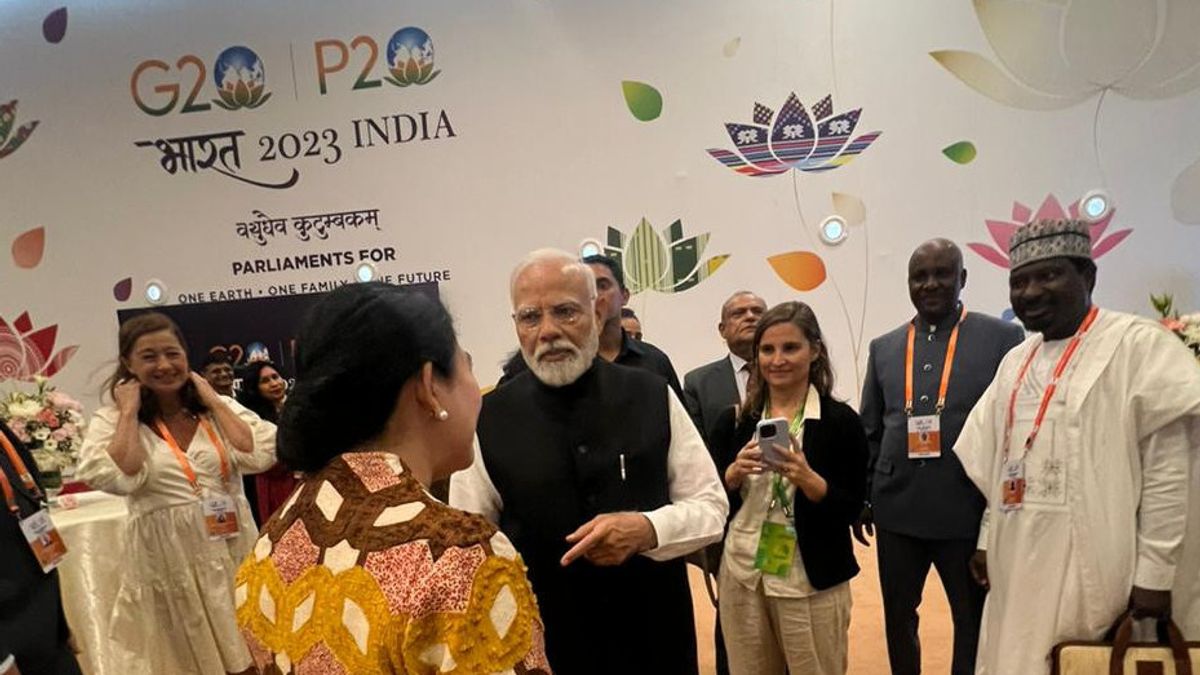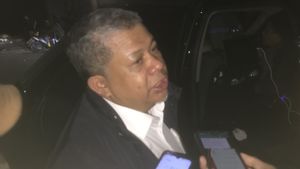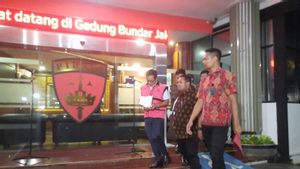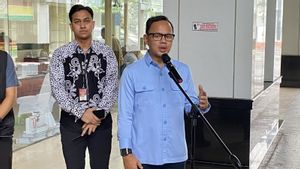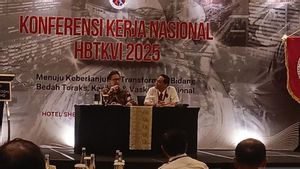JAKARTA - The Speaker of the House of Representatives, Puan Maharani, participated in the G20 Parliamentary Speaker's Summit in India. On the sidelines of the parliamentary session of the G20 countries, Puan had a warm chat with the Prime Minister (PM) of India, Narendra Modi.
Puan's meeting with Narendra Modi took place at the moment of the inauguration of the opening of the 9th P20 Summit (KTT) which was held at the Yashoboomi Convention Center, New Delhi, India, Friday, October 13. PM Modi opened the P20 Summit.
Every now and then Puan and PM Modi are seen laughing furiously while talking. Apart from lunch, Puan and Modi were also seen talking while standing waiting for the event to start. A number of other members of parliament were also present.
There was a moment when PM Puan Modi discussed with several other G20 MPs, including two women's Parliamentary Chairs.
As stated by Indian Prime Minister, Narendra Modi at the inauguration of the 9th Conference of the G20 Parliament (P20) in New Delhi this morning: time to move together. It is time for the world parliament to become an important element of change, join hands towards one earth, one family, one future," said Puan.
Puan also sat at the same table with PM Modi during the lunch session after the opening of the 9th P20 General Assembly. Apart from being with Modi, Puan also sat in a table with the Chairman of Lok Sabha (Indian People's Council) Om Birla and the President of the Inter-Parliamentary Union (IPU) Pacheco Duarte.
Not only with PM Modi, but Puan also spoke with other Speakers of Parliament, such as the Chairman of Lok Sabha Om Birla, Chairman of the National Assembly of the Republic of Korea, Kim Jin-Pyo and others. Puan was also seen discussing the P20 session with the President of the IPU, Pacheco Duarte.
SEE ALSO:
Puan spoke about the importance of world countries trying to achieve the achievement of the target of the Sustainable Development Goals (SDGs) or Sustainable Development Goals. He also emphasized the importance of the Parliament's encouragement to the Government to resolve various issues of war and global humanitarian conflicts.
Then in the second session which took the theme of the One Earth-gate Sustainable Energy Transition Towards the Future of Environmental Friendly, Puan talked about access to renewable and affordable energy which is the key to development in the future era. To achieve this, all countries are reminded to commit to face various challenges together.
"However, we face tough challenges. the renewable energy financing gap received by developed and developing countries, and the continued impact of war and crisis in several parts of the world which has led to soaring food and energy prices that have an impact on developing countries," said Puan.
The 8th President of P20 continued, strong multilateral cooperation and collaboration are also needed in accelerating the energy transition. In addition, said Puan, to ensure that developing countries can benefit from opportunities and innovation.
"Accelerating the energy transition requires fair and inclusive global cooperation," said the first woman to serve as Chair of the DPR RI.
Puan then gave an example, currently Indonesia has set a target for renewable energy of 23 percent by 2025. Even in 2030, he hopes that more than half of the use of renewable energy in Indonesia will be in the form of bioenergy originating from solar energy, hydropower, and geothermal.
"In terms of financing instruments, Indonesia has introduced environmentally friendly Islamic bonds in 2018. We have also published environmentally friendly bond instruments globally," said Puan.
The DPR itself is also said to have contributed to the success of the renewable energy program. This, according to Puan, can be seen from the discussion of the New and Renewable Energy Bill (RUU) which will be the commitment of the Parliament.
"Parliament, in this case, has an important role to play in advancing laws that contribute to short-term and long-term energy policies," said Bung Karno's grandson.
"Policies that encourage the shift to renewable energy and prioritize budget allocations for low-carbon activities," added Puan.
The English, Chinese, Japanese, Arabic, and French versions are automatically generated by the AI. So there may still be inaccuracies in translating, please always see Indonesian as our main language. (system supported by DigitalSiber.id)
